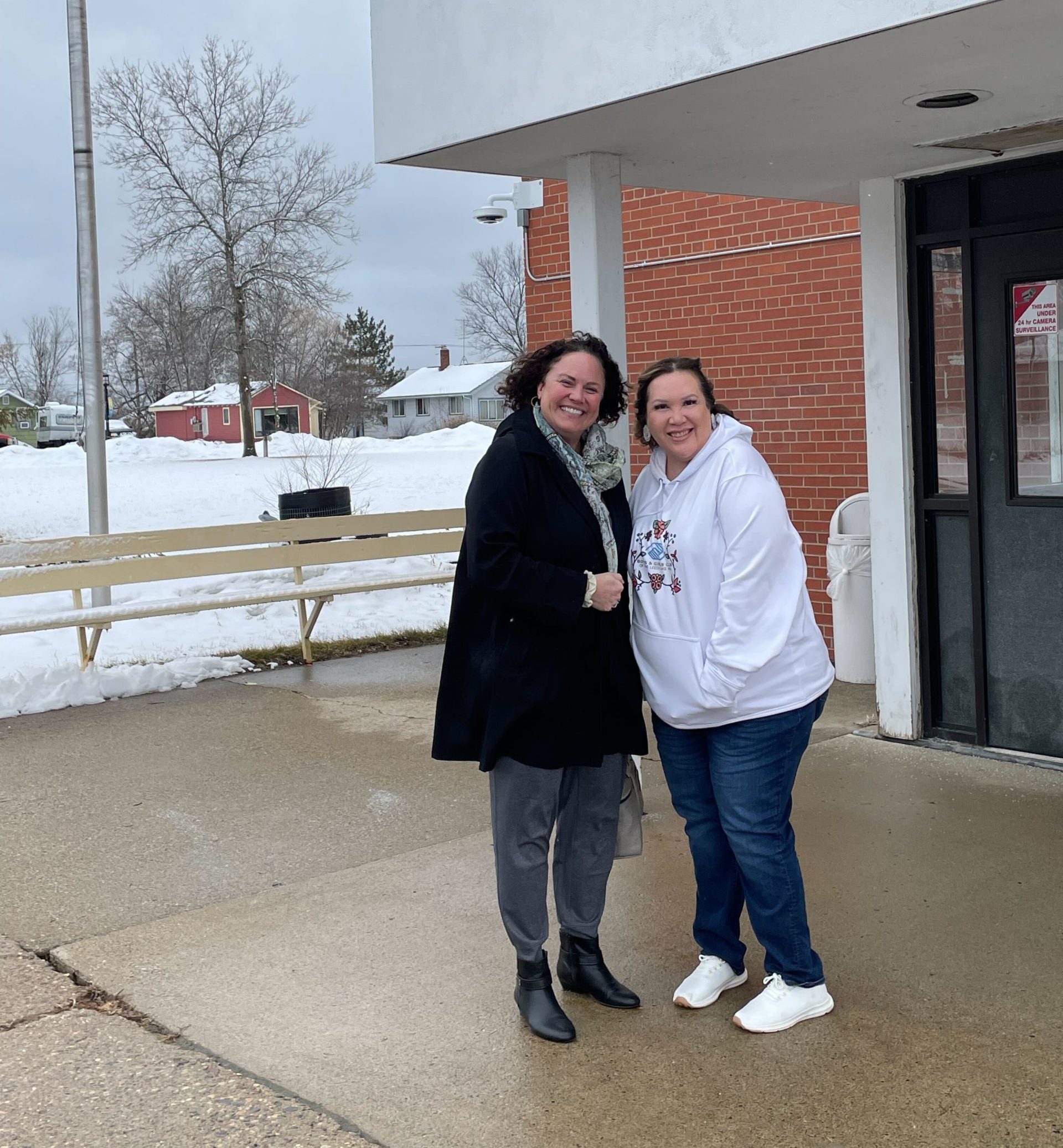Supporting children’s mental health and well-being

Disaster Recovery in Native Communities impact story
The Center for Disaster Philanthropy awarded $95,325 to the Leech Lake Area Boys and Girls Club in May 2021 for mental health, resilience and wellness programming for the children and staff in their Northern Minnesota region (four communities).
CDP became aware of the organization and its needs due to the leadership it provided in the community during the COVID-19 shutdown. Because schools were closed but child care was needed for essential workers’ children, the Boys and Girls Club shifted from after-school, school-aged care and programming to daytime child care. In addition, it provided food, meals and feeding services. When CDP talked to them about needs following several severe storms and the return to school, mental health was the biggest concern.
Leech Lake Band of Ojibwe reaches across four counties in Northern Minnesota, with the majority of the Band living in Cass County. Approximately 3,256 Native Americans (11.5% of the county population) live in Cass County. The Leech Lake Band of Ojibwe has an enrollment of 9,426 members (as of 2014), with more than 3,000 living on the reservation.
Seventy-five percent of children are eligible for free or reduced lunch in Cass County, compared to 37.6% across Minnesota, and 29% of Cass County children under 18 live below 100% of the Federal Poverty rate, compared to 13.3% across Minnesota. Unemployment in Cass County is 17.4%, compared to 3% statewide.
The focus of this project is the impact of COVID-19 on the mental health and well-being of children served by Leech Lake Area Boys and Girls Club. Boys and Girls clubs operate in the Leech Lake communities of Cass Lake, Deer River and Walker.
All children have faced previously unimaginable stressors and change in the last two years due to the pandemic. But those children who already live with daily stress and unknowns in their lives, like many of the Native American children living on Leech Lake Reservation, have experienced even greater challenges, as stress around poverty, food insecurity, poor housing and other so-called typical challenges have been exacerbated by COVID-19.
Leech Lake Boys and Girls Club is the positive, safe, caring adult in many children’s lives and the place to be with friends and have fun. During the shutdown, children were at home, and when they returned to school and the Boys and Girls Club, children exhibited negative behaviors and a need for mental health support.
Leech Lake Boys and Girls Club is working to provide mental health services, well-being services and activities that support the children’s mental health in a positive manner. In order to do this, they need additional capacity – someone to coordinate, find funding and arrange training. Their staff needs the training to work in a trauma-informed way and training and skills for their own well-being (caring for the caregiver). Also, outside professionals are needed to provide services for the children and staff and train them to carry on healthful activities.
“We all have different experiences,” said Operations Director David North Bird. “Many of us have experienced trauma and work with kids who have experienced trauma. I’ve received training, but I want our whole staff to have the tools they need to be successful.”
Executive Director Rebecca Graves also wants to normalize getting mental health services. “If the kids learn about it and are getting mental health services in a comfortable environment like Boys and Girls Club, maybe it will decrease the stigma. If we can remove the stigma during youth, they can become mental health service users without the stressors of the stigma some adults face.”
So far, the staff has completed Mental Health First Aid training and the kids have had time with art therapists. In the works for late summer is a staff retreat for staff to learn about trauma and work through their lived experiences to better enable them to work with children who have experienced trauma.
They have a goal of hiring a coordinator of mental health, wellness and resilience programming and want to continue to provide training to their staff and services to the children. The training that the staff receive will be beneficial to them and all of the children they work with throughout their careers.
The services the children receive may truly be the difference between life and death, as suicide is a concern, even in elementary school-aged children. The issues the staff and children deal with in their every day lives may shock some people. The staff want and need mental health resources to better serve the children who live in that sometimes-shocking reality, with the end goal of providing a safe, positive place with caring adults to provide them hope.